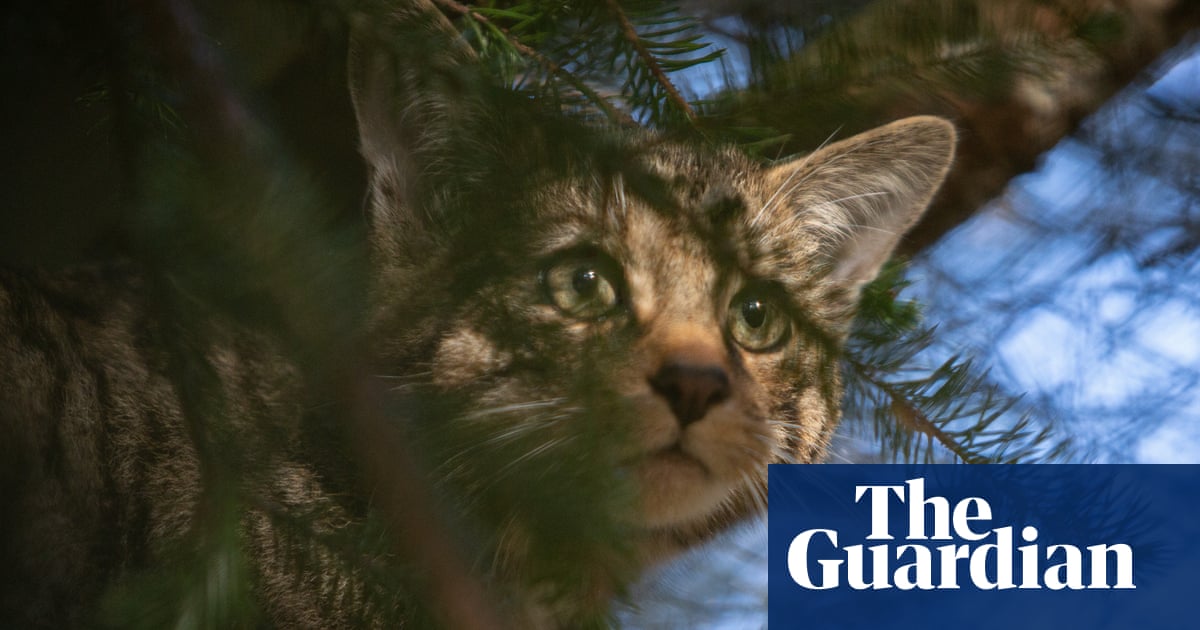
Ordinary people are being invited to invest in projects to rewild the Scottish Highlands by a company that is restoring nature on two estates and seeking to expand its rewilding portfolio.
“Citizen rewilders” can invest a minimum of £50 and up to £200,000 in £10 shares in Highlands Rewilding, which hopes to provide a 5% annual return on the investment over 10 years.
Since its initial funding by 50 large investors, Highlands Rewilding has purchased two estates: Bunloit, 513 hectares (1,270 acres) of broadleaf woodland and grassland on the banks of Loch Ness; and Beldorney in Aberdeenshire, a 349-hectare riverside site of overgrazed pasture and coniferous plantations.
Dr Jeremy Leggett, its founder and chief executive, said: “This seems to be the only way, currently, that Scottish citizens can co-own land where nature recovery is being pursued for profit.”
The company, which last month won an RSPB award for its nature recovery work, hopes to generate income primarily from the sale of carbon credits and biodiversity credits, which big corporations are increasingly interested in buying to demonstrate that they are “nature positive”. Other revenue streams include ecotourism, high-value nature-friendly farm produce, and ecobuilding.
While there is suspicion that some “green lairds” wish to exclude people from Scottish land to rewild it, Highlands Rewilding says community involvement is a key part of its restorative mission – enabling local people to co-own, work or live on the rewilding land they buy.
“We’re hoping in our dreams that there will be lots of sign-up from local communities where we work,” said Leggett. “The mass ownership model that Highlands Rewilding is running is unique and popular. It’s not a corporate thing where a giant company is coming in and buying a massive tract of Scotland.”
On Bunloit, the focus is on restoring and creating new broadleaved woodland, while Beldorney is a “blank canvas” for nature recovery, with the removal of non-native conifers and riparian rewilding along the River Deveron. Beldorney also has 10 ruined crofts in which new rural populations could be established.
Leggett, a former climate campaigner for Greenpeace who previously led the solar company Solarcentury, hopes to raise £8m to expand its projects and acquire new land.
“There’s a cost of living crisis and for citizen rewilders £50 is a lot of money but the big equity investors are now seriously interested in this space,” he said. “By the end of February I’m hopeful we’ll have landed the first serious institutional investment, which would be a gamechanger.”
The Green Finance Institute has calculated that there must be £15bn-£27bn of private investment over the next 10 years for the Scottish government to achieve its ambitious carbon and biodiversity targets.
“That’s an Everest of a target and we’re not even in the foothills yet but this is an effort to get into the foothills,” said Leggett.
According to Leggett, natural capital investment in carbon sequestration and biodiversity recovery is at a similar stage to the solar industry just before it took off but with one difference: no corporations are resisting the calls to cut carbon and restore biodiversity.
Instead of oil and gas companies, “the incumbents are traditional landowners who have historically done an awful lot to trash biodiversity”, he said. “The zeitgeist from landowners is now, ‘This has got to change.’ Even the estate agents in Scotland are not selling properties anymore based on how many red deer stags you can slaughter, but on their natural capital potential.”
The citizen rewilding offer is only available to UK residents, with overseas residents required to offer a minimum investment of £10,000. The Financial Conduct Authority considers investment in Highlands Rewilding to be high-risk because it is a startup business.












